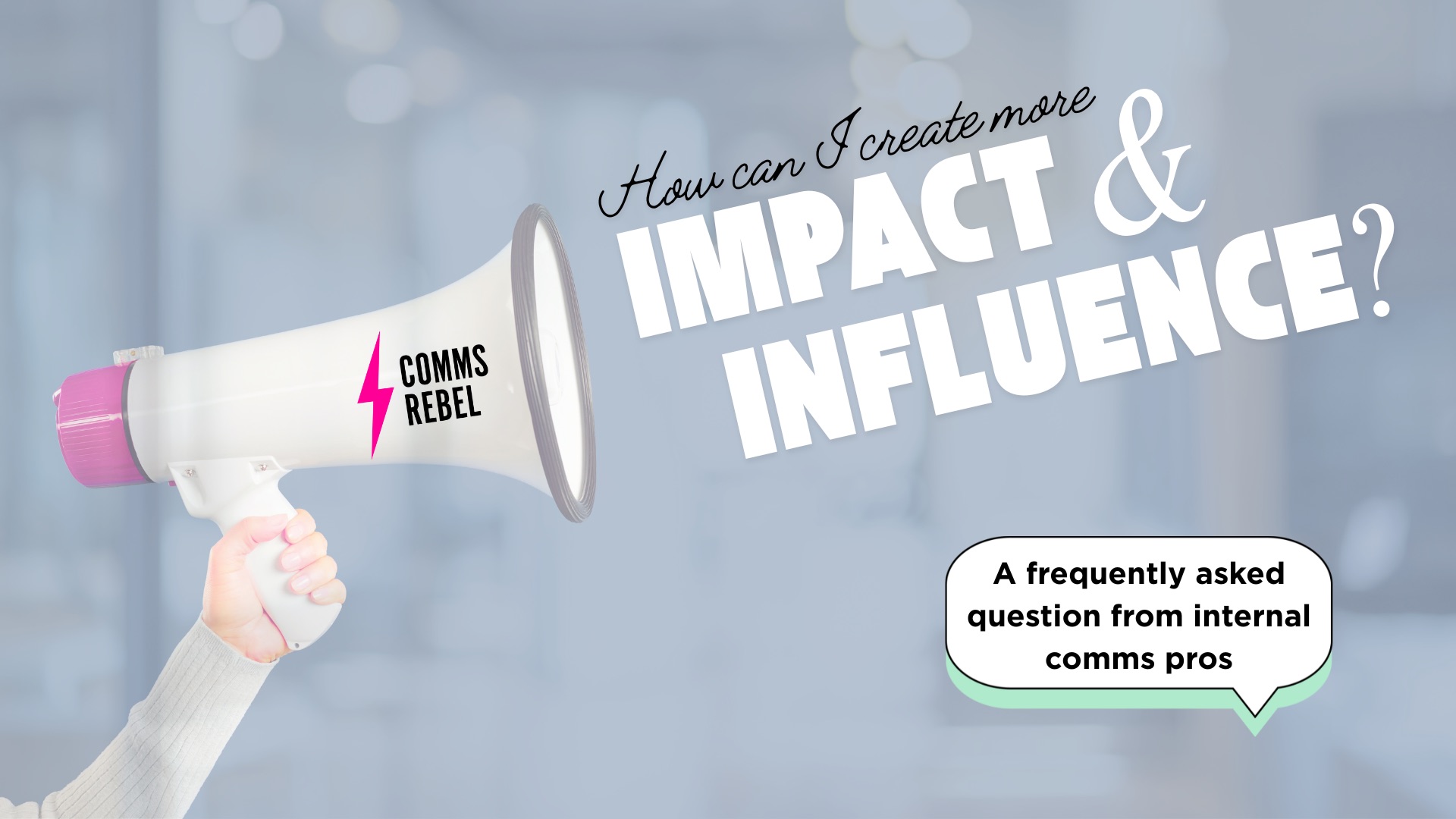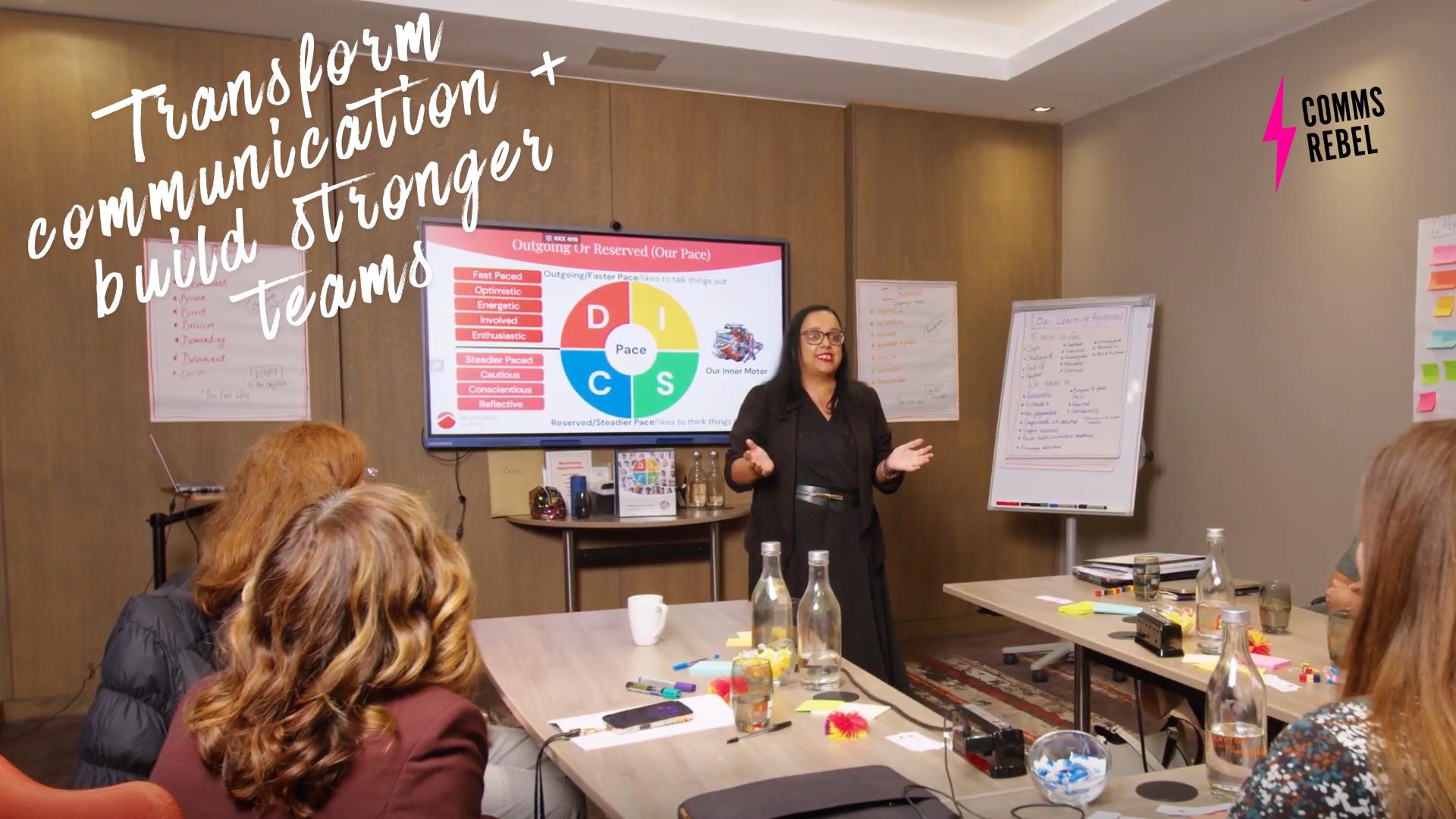A question that often comes up in my coaching sessions and conversations with internal communications professionals is:
“How can I create more influence and impact in my role?”
It’s a good question and one that almost all of us ask at some point. Sometimes it comes from feeling stuck or unheard. Other times it’s because we want to move from being seen as doers to being recognised as trusted advisors.
Influence isn’t about shouting louder. It’s about demonstrating value, understanding the business, and building credibility over time. And while there’s no single formula, two areas consistently make the biggest difference: showing our value and knowing our business.
1. Demonstrate Value. Don’t Just Deliver Outputs.
It’s easy to get swept up in the constant spin of requests. Messages to write, intranet posts to publish, campaigns to launch, and updates to send. We get busy, fast. But busyness isn’t the same as impact.
The question we need to ask is: “Are we demonstrating value, or just producing volume?”
People across our organisations will always ask for things – an all-staff message, a new channel, a last-minute campaign. But unless there’s a clear rationale or alignment with what the organisation actually needs, it’s worth pausing before jumping in.
Instead of saying yes straight away, we can start by asking a few strategic questions:
- What’s the issue you’re trying to solve?
- What are the consequences of not doing this?
- What behaviour change are you hoping to see?
- What does success look like to you?
These simple questions can shift the entire conversation. They encourage our stakeholders to think more deeply about purpose and outcomes, and they help position us as partners, not just doers.
We’re often told to say “no” more often, but it’s rarely that straightforward. What works better is a “coaching no”, one that opens a discussion and leads to a clearer, more strategic outcome.
When we start linking our work directly to business priorities such as engagement, performance, customer experience or retention, our value becomes visible, measurable and much harder to overlook.
2. Become a Business Leader with Communication Expertise
The second way to build influence is by truly understanding the organisation we support.
We can’t shape the story if we don’t understand the system.
That means getting curious about how the business operates, what keeps our leaders up at night, and what trends or challenges are shaping the industry around us.
We often talk about being trusted advisors, but trust grows from knowledge. When we know our business, we speak the same language as our stakeholders and that’s when we start being invited into the conversations that matter.
One simple way to build this understanding is to do a personal SWOT analysis for our organisation:
- Strengths: What are we doing well?
- Weaknesses: Where are the communication or cultural gaps?
- Opportunities: What could we do more of to drive change or engagement?
- Threats: What external or internal risks could affect performance or morale?
We can also demonstrate curiosity by sharing insights. Sending a relevant article, podcast or report to a leader shows that we’re thinking about the wider business, not just our immediate workload. It’s a small gesture that builds big credibility.
We should all see ourselves as business leaders with communication expertise, not just communicators in a business. That subtle mindset shift changes how we show up, how we influence, and how others see our role.
Building Influence Is About Consistency, Not Control
Influence isn’t about having all the answers or holding all the power. It’s about trust, relationships and reliability.
When we consistently show we understand the business and deliver communication that drives outcomes, influence follows naturally. We stop being the people leaders call after a decision is made, and start being the ones they consult before they make it.
So if you’re feeling like your voice isn’t being heard, start small.
Ask one more strategic question in your next meeting.
Spend ten minutes reading up on your organisation’s latest results.
Share a useful resource with a senior leader.
These small, intentional actions compound over time, and before long, they start to change how others perceive the value of what we do.
Influence doesn’t happen by chance. It grows from two simple shifts:
- Moving from delivering outputs to demonstrating value.
- Reframing ourselves as business leaders with communication expertise.
When we do that, we stop asking for a seat at the table and start earning our place there through insight, impact and trust.
At CommsRebel, we turn intention into impact by aligning people, purpose and performance through confident communication. Book a free Intention Call to find out how we can help you deliver impactful business results.
P.S. If you enjoyed this post, check out what’s keeping leaders awake at night


